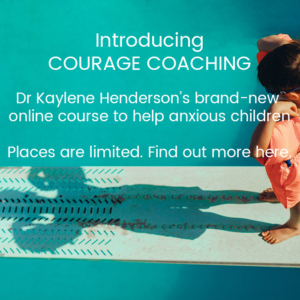Common Childhood Mental Health Problems Explained
Mental health problems are very common with almost half (45%) of all Australians experiencing a mental illness in their lifetime. A significant proportion of these illnesses begin in childhood. It is estimated that one in every seven children (14%) aged between 4-17 experience mental health or behavioural problems in Australia.
It can be useful to have an understanding of the common childhood mental health and development problems experienced by young children, particularly as sometimes these affect children’s emotions, behaviours and learning.
Some of these mental health problems affecting children include:
- Anxiety: Examples of anxiety disorders that can affect children include Obsessive Compulsive Disorder (OCD), Separation Anxiety Disorder and Generalised Anxiety Disorder (GAD). Even if your child struggles with worries and mild anxiety symptoms, it can still be helpful for him to learn skills to manage these as he will then have these skills for life.
- Attention Deficit Hyperactivity Disorder (ADHD): ADHD affects a child in such a way that he is significantly more distractible or impulsive than other children of the same age. Treatment is helpful for children with ADHD, ideally before their learning, peer relationships and self-esteem become affected.
- Autism Spectrum Disorder (ASD): ASD affects a child’s ability to socially connect with others. ASD also makes it hard for children to understand others’ perspectives and emotions. Children with ASD may have differences in or delayed speech, restricted or obsessional areas of interest and unusual behaviours or gestures.
- Speech Disorder: Speech disorders affect a child’s ability to produce speech sounds with his mouth muscles and/or to use his voice to communicate effectivel If your child is not talking by the age of 18 months or if you have concerns any earlier, please seek an assessment through your family doctor or child health specialist.
- Language Disorder: Language disorders affect a child’s ability to understand language and/or affect his ability to use language to share his thoughts, feelings and ideas. In language disorders, it’s not the mouth muscles or voice which are affected but the language centres in the brain. That said, language and speech disorders can sometimes occur together.
- Sensory processing difficulties: These difficulties cause a child to need to either avoid or seek more of particular sensations such as noise, touch, movement, taste, smell, pressure or visual stimuli.
- Tics: Childhood tics are quick, repetitive movements or sounds that your child feels like he has no control over. Tics often appear suddenly, most often in young boys. They are common, affecting up to 25% of children at some stage, although some kids appear to be unaware of them. Examples of tic include eye blinking, facial grimacing, sniffing and throat clearing.
Other physical or medical conditions can also affect children’s behaviours and emotional control:
- Intellectual impairment
- Hearing or visual impairment
- Many medical illnesses such as diabetes, allergies, absence seizures can also affect children’s moods and behaviours.
If you suspect that your child might be experiencing one of these conditions, then please seek an early assessment from your family doctor or child health specialist. It’s always better to check and have a condition ruled out, than wish that you’d detected something earlier.
*For simplicity, children are referred to using masculine pronouns (‘he’/‘him’) in this article, although the information equally applies to girls.
Dr Kaylene Henderson is passionate about sharing practical, research based advice to help you feel more calm and confident while raising kind, resilient and socially and emotionally healthy children.
And here for the corresponding course series for early childhood professionals, Raising Good Kids: Managing Behaviour and Emotions in Early Childhood Care and Education Settings.



